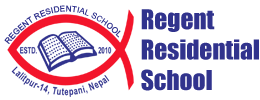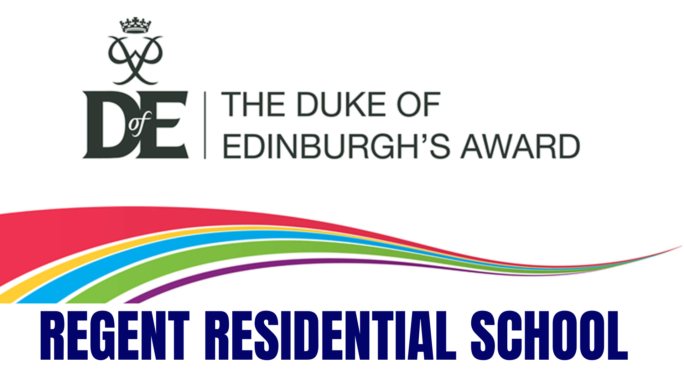Introduction
The Duke of Edinburgh’s International Award is the world’s leading youth achievement award, with more than 1.3 million young people in 144 countries participating. The Award helps young people to develop skills that future employers and education institutions value highly, giving them an edge in the ever changing modern world. The Award is open to anyone 14-24 years old and is available in 3 levels – Bronze, Silver, & Gold. Each of the levels is divided into 4 skill-developing sections.
Award History
The Duke of Edinburgh’s International Award equips young people for life. It is the world’s leading youth achievement award. The Award was founded by HRH The Duke of Edinburgh in 1956, in conjunction with Kurt Hahn, the German educationalist. Both were concerned that young people’s development was lacking in certain key areas, and they resolved to create a programme that would be a ‘do-it-yourself kit’ for inspired living.
By creating opportunities for young people to develop skills, get physically active, give service and experience adventure, the Award can play a critical role in their development outside the classroom. It also allows their achievement to be consistently recognised worldwide, giving young people unique international accreditation of their experiences.
The Award is transforming individuals, communities and societies around the world. Young people who do the Award become more confident and resilient, and develop skills in areas such as communication, problem solving and leadership. This in turn impacts on their communities, who see improvements in areas including employability, health and wellbeing, and educational attainment.
Since its launch over sixty years ago, millions of young people have participated and received Awards, with millions more benefiting from its impact in communities around the world.
The Award is open to all young people regardless of their background and circumstances. Award projects around the world involve young offenders, homeless children and post conflict communities. The impact of the Award on these and many more young people is extraordinary – it transforms their lives.
As an international framework which remains the same wherever it operates, the Award is a unique global currency through which young people can demonstrate their achievements and value.
Award Sections
The Award programme is divided into 3 levels – Bronze, Silver, and Gold. Each level of the Award requires a participant to undertake an activity in 4 sections – Physical Recreation, Skills, Community Service, and Adventurous Journey.
Physical Recreation
With its emphasis on both individual sport and team games, this section is designed to build the physical abilities of participants as well as their team spirit. In a world where more and more jobs are sitting in front of a computer, it is important to instil in young people the need for physical exercise and to demonstrate what can be achieved when they work together.
Examples: football, basketball, archery, martial arts, badminton, table tennis.
Skills
Developing skills is at the core of the Award. Some participants may already be undertaking a skill and wish to improve, such as playing a musical instrument. Some choose to do something they’ve never done before and perhaps wished they could have done. The Award provides a supportive environment for trying new things and achieving greatness.
Examples: learning a musical instrument, singing, poetry and creative writing, arts & crafts
Community Service
When young people get involved in community service, they learn to step outside themselves and their world, to experience the world of other people. This is an opportunity to give something back to their community and the larger world through, for example, planting trees and working with the elderly. This enhances the community spirit which prepares young people to be compassionate, committed global citizens.
Examples: tree planting, environmental rehabilitation, tutoring, mentoring, NGO volunteering, elderly work
Adventurous Journey
There aren’t many young people who don’t like adventure, to get away from the rules and structure of home and school life, and to do something truly independent. The Adventurous Journey takes the form of an overnight trek, increasing in length for higher levels of the Award. Participants have to plan and execute the entire journey themselves, helping to develop independence and resilience, alongside hard skills like map reading and cooking.
Examples: hike to the top of a local mountain, white-water raft along a river, climb Mt Everest
Residential Project (GOLD AWARD ONLY)
The Residential Project is the capstone of the Gold Award. Either individually or in a small group, participants go to a location they’ve never been before to focus on a single project for 5-6 days. This could be building homes and classrooms in a disadvantaged community, or making presentations in schools on social issues – the project is up to the participants.
Why Award
As a non-formal education framework, the Award can play a vital role in providing opportunities for young people to develop essential life skills, increase their employability and foster their creativity and innovation.
The Award is transforming individuals, communities and societies around the world. We have developed nine impact measures to quantify and explain the relationship between short-term personal outcomes in young people and the longer term social impact of the Award. It is likely to take many years for the results of the impact measures to become evident, therefore we have also established a set of ten outcome measures that can be observed in the short-term. We are currently measuring these outcomes in young people doing the Award and will report on them shortly.
Tangible Benefits
- Worldwide Recognition
- Helps in getting scholarships all over the world
- Helps in getting preference in job market worldwide
- Opportunity to attend different international programs both at home and abroad
- Involvement with international organisations
- International network of awardees
- Experience working with people from different levels of society and from different cultures
Intangible Benefits
- Personal discovery and growth
- Self-belief and self-confidence
- Social awareness and involvement in the activities of social and charity organisations
- Sense of responsibility to the self and society
- Development of life skills such as negotiation, communication, problem solving, presentation, etc.
- Scope to serve the community
Regent Residential School: Duke of Edinburgh International Award Registration Open
We are thrilled to announce the opening of registration for the Duke of Edinburgh International Award at Regent Residential School. This prestigious program offers an incredible opportunity for personal growth and self-discovery. We are committed to ensuring that all eligible students have the chance to participate. Therefore, we encourage highly motivated and dedicated individuals aged 13 and above to apply, even though the official age criteria are 14-24.
Here are some important details regarding the registration process:
1. Limited Seats: We have a limited number of seats available for the Duke of Edinburgh International Award program. Therefore, it will be a “first come, first serve” basis for eligible students. We encourage you to register as soon as possible to secure your spot.
2. Rigorous Selection Process: Participation in the Duke of Edinburgh International Award program is not guaranteed. All applicants will undergo a thorough selection process to determine their suitability for the program. This process will assess various criteria, including commitment, dedication, and willingness to take on challenges.
3. Financial Considerations: Please be aware that participation in the Duke of Edinburgh International Award program may involve certain expenses, such as registration fees, expedition costs, and the purchase of necessary equipment. We want to emphasize that this program is an investment in your personal development and growth, and it requires dedication and financial planning.
4. Dedication Required: The Duke of Edinburgh International Award is a prestigious program that demands dedication and commitment from its participants. It includes a variety of activities in the areas of service, skill development, physical fitness, and adventurous journeys. Successful completion of the award will require your time and effort.
5. Age Criteria: The official age criteria for participation in the Duke of Edinburgh International Award program are 14 to 24 years old. However, we understand that there are exceptionally motivated and dedicated individuals who are 13 years old and eager to participate. We encourage such individuals to apply, as we believe in nurturing young talents and passions.
6. Parental Consent: If you are 13 years old and wish to participate, we will require parental consent to ensure your safety and support throughout the program.
We believe that the Duke of Edinburgh International Award program is an excellent opportunity for students to challenge themselves, develop new skills, and build valuable life experiences. If you are interested in participating, we encourage you to register as soon as possible and prepare yourself for the selection process.
For registration and further information, please visit our school’s administration office. If you have any questions or require assistance, do not hesitate to contact us.
Let’s embark on this rewarding journey together and work towards achieving your personal and academic goals through the Duke of Edinburgh International Award program.
Sincerely,
Ramji Acharya
DoE Award Coordinator
Regent Residential School
9857621920

